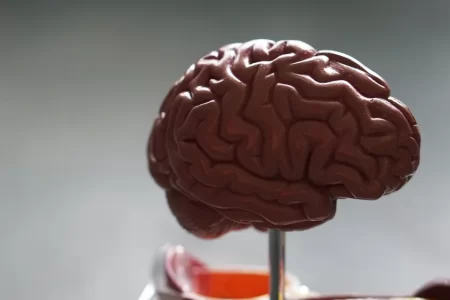Understanding Alzheimer’s Disease: Causes, Symptoms, and Prevention
- Updated on: Feb 29, 2024
- 4 min Read
- Published on Nov 6, 2023

Introduction
Alzheimer’s disease is a progressive and devastating neurological condition that affects millions of people worldwide. While it predominantly affects older individuals, it can strike at any age. Understanding Alzheimer’s disease, including its causes, symptoms, and prevention, is crucial to improve the quality of life for both those living with the disease and their caregivers. In this comprehensive guide, we will delve into the intricate world of Alzheimer’s disease, exploring its origins, the telltale signs of its presence, and strategies for prevention and early intervention, all while considering the importance of efficient healthcare systems and revenue cycle management in providing the best care and support for those affected by this condition.
What Is Alzheimer’s Disease?
Alzheimer’s disease is a degenerative brain disorder that impairs memory, thinking, and behavior. It is the most common cause of dementia, a general term for a decline in cognitive ability severe enough to interfere with daily life. The disease was first identified by Dr. Alois Alzheimer in 1906, and since then, it has become a major global health concern.
Causes of Alzheimer’s Disease
While the exact cause of Alzheimer’s disease remains unknown, research has identified several risk factors and potential contributing factors. Let’s explore some of these factors:
1. Age
Age is the most significant risk factor for Alzheimer’s disease. The likelihood of developing the condition increases as a person gets older. While Alzheimer’s can affect people in their 40s and 50s (early-onset Alzheimer’s), it is most common among individuals over the age of 65 (late-onset Alzheimer’s).
2. Genetics
Genetic factors play a role in the development of Alzheimer’s disease. A family history of the condition can increase the risk. Researchers have also identified certain genes, such as the APOE ε4 allele, which is associated with a higher risk of Alzheimer’s.
3. Brain Changes
Alzheimer’s disease is characterized by the accumulation of abnormal protein deposits in the brain. Two key proteins involved are beta-amyloid plaques and tau tangles. These deposits disrupt the communication between brain cells and cause cell damage and death, leading to cognitive decline.
4. Environmental Factors
Exposure to certain environmental factors, such as air pollution and long-term alcohol abuse, may contribute to an increased risk of Alzheimer’s disease. However, the extent of their influence is still a subject of ongoing research.
5. Lifestyle Factors
Unhealthy lifestyle choices, such as a poor diet, lack of exercise, smoking, and excessive alcohol consumption, have been associated with an increased risk of Alzheimer’s. A sedentary lifestyle and a diet high in saturated and trans fats can negatively impact brain health.
6. Cardiovascular Health
Heart health and brain health are closely linked. Conditions that affect the cardiovascular system, such as hypertension, high cholesterol, and diabetes, can also increase the risk of Alzheimer’s disease. Maintaining a healthy heart can contribute to a healthier brain.
Symptoms of Alzheimer’s Disease
Alzheimer’s disease progresses through different stages, each characterized by specific symptoms. While it may vary from person to person, here are the typical stages and symptoms associated with Alzheimer’s:
1. Mild Cognitive Impairment (MCI)
- Forgetfulness, particularly of recent events
- Difficulty finding the right words
- Trouble with complex tasks
- Poor judgment
- Misplacing items
2. Mild Alzheimer’s Disease
- Increased memory loss
- Confusion about time and place
- Difficulty recognizing family and friends
- Problems with organizing and planning
- Challenges with language and communication
3. Moderate Alzheimer’s Disease
- Increased memory and cognitive deficits
- Wandering and getting lost
- Personality and behavior changes
- Hallucinations and delusions
- Inability to recognize close family members
4. Severe Alzheimer’s Disease
- Severe cognitive decline
- Inability to communicate
- Complete dependence on others for daily activities
- Loss of bodily functions
- Vulnerability to infections
The progression of Alzheimer’s disease is heartbreaking, and caregivers often bear the emotional and physical burden of supporting their loved ones through the stages of decline.
Prevention and Risk Reduction
While there is no cure for Alzheimer’s disease, there are steps that individuals can take to reduce their risk and possibly delay the onset of the condition:
1. Maintain a Healthy Lifestyle
- Adopt a balanced diet rich in fruits, vegetables, whole grains, and lean proteins. Foods like fish, nuts, and olive oil, which are high in omega-3 fatty acids, have been associated with brain health.
- Engage in regular physical exercise. Exercise improves blood flow to the brain and promotes the growth of new brain cells.
- Avoid smoking and limit alcohol consumption. Smoking and excessive alcohol intake are associated with an increased risk of Alzheimer’s.
2. Manage Chronic Conditions
- Control high blood pressure, cholesterol levels, and diabetes. These conditions can contribute to cognitive decline, so managing them effectively is crucial.
- Stay socially active. Engaging in social activities, such as joining clubs or spending time with family and friends, can help maintain cognitive function.
3. Mental Stimulation
- Challenge your brain with puzzles, games, and learning new skills. Staying mentally active can promote brain health and delay cognitive decline.
4. Sleep
- Prioritize quality sleep. Sleep is essential for memory consolidation and overall brain health.
5. Manage Stress
- Chronic stress can negatively affect the brain. Engage in stress-reduction techniques such as mindfulness, meditation, or yoga.
6. Seek Medical Care
- Regular medical check-ups can help identify and manage conditions that may contribute to Alzheimer’s disease.
7. Stay Informed
- Stay informed about Alzheimer’s disease and its risk factors. Understanding the condition can help individuals and their families make informed decisions about prevention and treatment.
Diagnosis and Early Intervention
Early diagnosis is crucial for effectively managing Alzheimer’s disease. If you or a loved one is experiencing memory problems or cognitive decline, it’s important to seek medical advice. Early intervention can help individuals and their families plan for the future, access available treatments, and participate in clinical trials. Healthcare providers, in collaboration with an EHR vendor, can facilitate the timely and accurate recording of patient data, which is vital in the diagnostic process and in the ongoing management of Alzheimer’s disease.
Diagnosis typically involves a medical evaluation, a thorough medical history, cognitive testing, and imaging studies of the brain. While there is no cure, some medications may help manage the symptoms and slow the progression of the disease in some cases.
Conclusion
Alzheimer’s disease is a challenging condition that affects millions of individuals and their families worldwide. While there is no cure, understanding the causes, symptoms, and prevention strategies is essential for reducing the risk and improving the quality of life for those affected. By maintaining a healthy lifestyle, managing chronic conditions, staying mentally and socially active, and seeking early intervention, we can take significant steps toward reducing the impact of this devastating disease. It is our hope that ongoing research will lead to breakthroughs in Alzheimer’s prevention and treatment, offering hope to those living with the condition and their loved ones.












